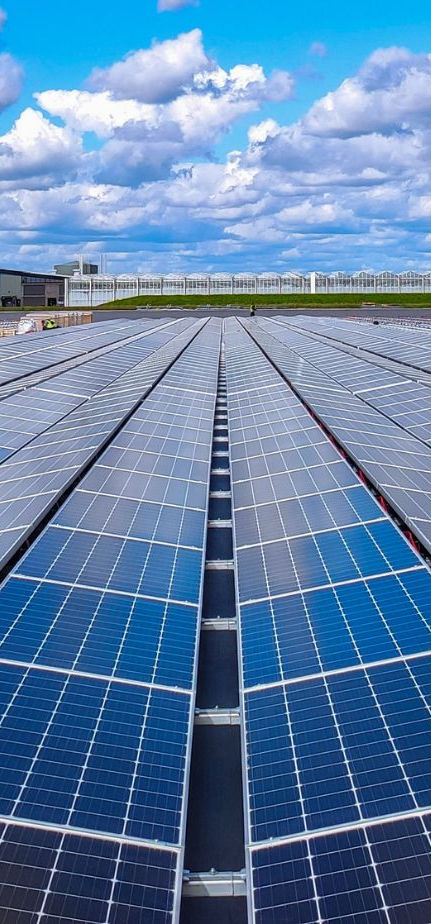Commercial Solar 101—Everything You Need to Know Before You Invest
What is Commercial Solar?
Commercial Solar System Types
Rooftop Solar Systems:
Ideal for businesses with flat or gently sloped roofs. Rooftop solar maximizes underused space to lower your energy bills without taking up valuable land, offering excellent long-term returns with minimal disruption.
Solar Carport Structures:
Dual-purpose systems that generate clean energy while providing shaded parking for employees, customers, or tenants. Carports are highly visible, offer protection from the elements, and add significant functional value to your property.
Ground-Mounted Solar:
Perfect for businesses with adjacent open land or underutilized space. Ground-mounted systems offer flexible design options and allow for optimal panel orientation to maximize energy production year-round.
Solar + Battery Storage:
Pairing solar with battery storage enables businesses to store excess energy and use it during peak demand times, dramatically reducing demand charges and improving overall energy resilience. This combination enhances savings and adds critical backup power capabilities.
Why Smart Businesses Are Choosing Solar
Going solar isn’t just about going green — it’s a smart business decision to control costs, strengthen operations, and build long-term financial resilience.

Lower Operating Costs
Cut one of your biggest overhead expenses and free up cash flow.

Hedge Against Rising Utility Rates
Lock in lower energy costs and shield your business from rising rates.

Boost Property Value

Tax Credits and Accelerated Depreciation

Sustainability Leadership (Corporate Responsibility)

How Tax Credits and Incentives Lower Solar Costs
Federal and state programs can dramatically reduce your solar investment costs. From the 30% Investment Tax Credit (ITC) to bonus depreciation and local cash incentives, we guide you through every opportunity to maximize your savings.

Federal Tax Credit (ITC)
Instantly offset 30% of your total solar project cost through the federal Investment Tax Credit (ITC).

State and Local Incentives
Many states, cities, and utilities offer additional rebates, tax exclusions, and other solar rewards.

Bonus Depreciation
Use accelerated depreciation (MACRS) to recover a large portion of your investment in the first year.

Grant Opportunities
Businesses, nonprofits, and agricultural properties may qualify for direct cash grants that significantly lower upfront costs.
Why Expert Consulting Matters Before You Invest in Solar
At EIP, we serve as your independent consultant—not a solar salesperson. We help you understand your true energy needs, compare contractor proposals, capture every available incentive, and build a solar strategy tailored to your business goals—not someone else’s sales quota.
